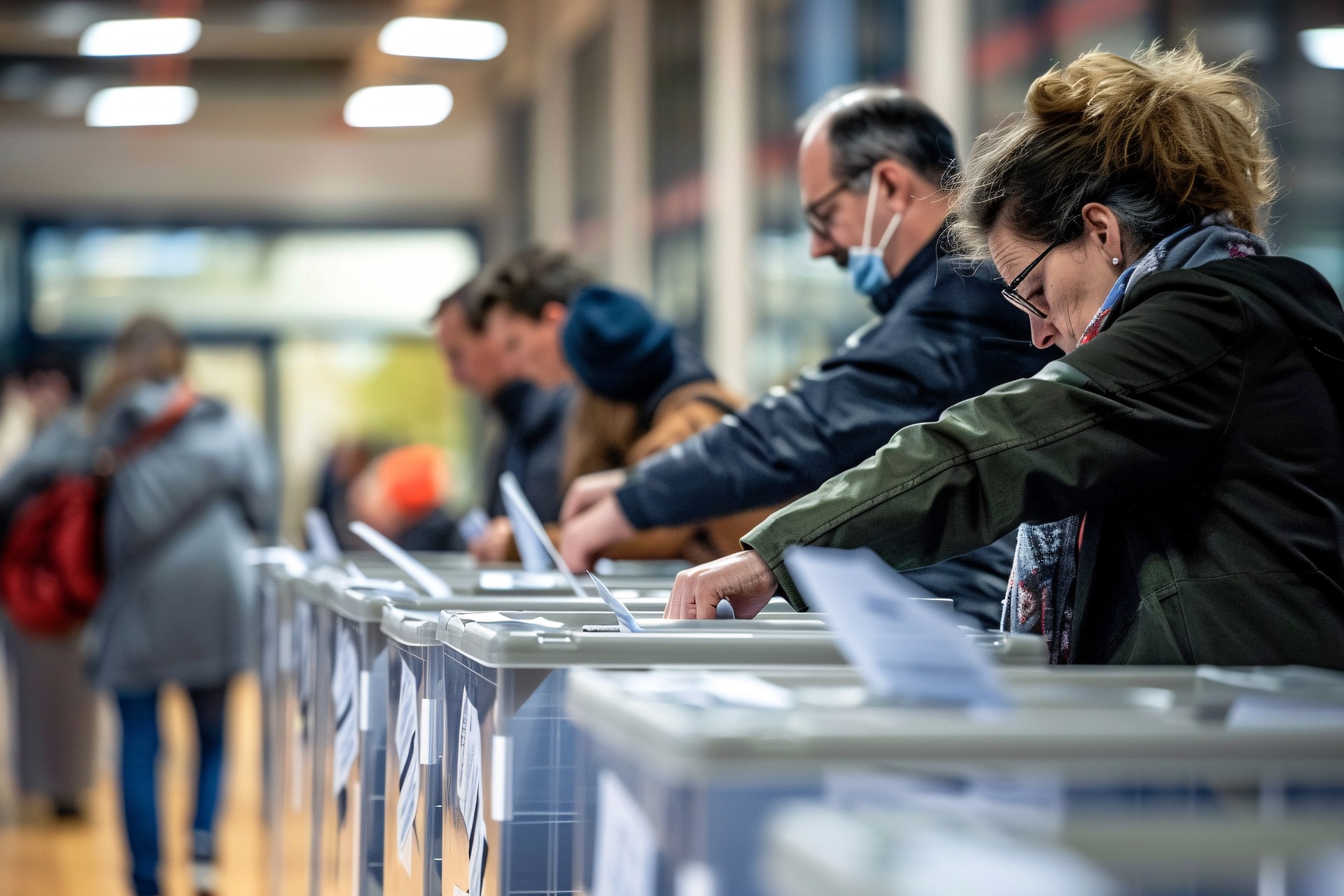Voting is a fundamental democratic process that allows citizens to participate in their governance by selecting leaders and deciding on various issues. The process of voting can vary significantly depending on the country, region, and specific type of election. This comprehensive guide will explore the general principles of voting, including eligibility requirements, registration processes, voting methods, and the importance of participating in elections. Additionally, it will cover common challenges and provide practical tips to ensure your vote is counted.
Understanding the Importance of Voting
Why Voting Matters
Voting is a critical aspect of a functioning democracy. It is the primary means by which citizens influence government decisions, policies, and leadership. Through voting, individuals have the power to shape their community, country, and future. Voting ensures that elected officials represent the will of the people and are accountable for their actions.
The Impact of Your Vote
Every vote counts in an election. In many cases, elections are decided by a small margin, highlighting the importance of each individual’s participation. Voting is not only about selecting candidates but also about voting on referendums, propositions, and other crucial issues that affect daily life, such as education, healthcare, and public safety.
Eligibility to Vote
General Eligibility Requirements
Eligibility to vote typically depends on factors such as citizenship, age, residency, and, in some cases, the absence of certain legal disqualifications.
- Citizenship: Most countries require voters to be citizens.
- Age: The legal voting age varies but is often set at 18 years.
- Residency: Voters must usually reside in the area where they are voting for a certain period before the election.
- Legal Status: Some jurisdictions disqualify individuals based on legal factors such as criminal convictions or mental incompetence.
Specific Eligibility Criteria
Eligibility criteria can differ based on local laws and regulations. It’s essential to check the specific requirements in your area to ensure you are eligible to vote.
Voter Registration
The Importance of Registration
Voter registration is the process by which eligible citizens enroll to vote in elections. Registration ensures that the electoral process is organized and that only eligible individuals participate. It also allows election officials to plan and manage elections more effectively.
How to Register to Vote
The registration process varies by country and region but generally involves submitting personal information to the appropriate electoral authority. This can often be done online, by mail, or in person.
- Online Registration: Many jurisdictions offer online portals where you can register to vote by providing personal details and verifying your identity.
- Mail-in Registration: Registration forms can be downloaded, filled out, and mailed to the electoral office.
- In-Person Registration: You can register at designated government offices, such as local election offices, DMV offices, or other authorized locations.
Deadlines and Verification
It is crucial to be aware of registration deadlines, which can vary. Some areas allow same-day registration, while others require registration well in advance of the election. After registering, you may receive a confirmation of your registration status, which should be verified for accuracy.
Methods of Voting
In-Person Voting
In-person voting involves going to a polling place to cast your vote on Election Day or during an early voting period.
- Polling Places: Designated locations where voters cast their ballots. They are typically set up in public buildings such as schools, community centers, or government offices.
- Early Voting: Some regions offer early voting periods before Election Day to reduce crowding and provide more flexibility for voters.
Mail-In and Absentee Voting
Mail-in and absentee voting allow voters to cast their ballots without going to a polling place. This method is especially useful for those who cannot vote in person due to travel, illness, disability, or other reasons.
- Requesting a Ballot: Voters must request a mail-in or absentee ballot from their local election office. This request can often be made online, by mail, or in person.
- Filling Out the Ballot: Once received, the ballot must be completed according to the instructions, which usually involves marking your choices and signing the envelope.
- Returning the Ballot: Completed ballots can be returned by mail, dropped off at designated locations, or sometimes submitted in person.
Online Voting
While still relatively rare, some regions have begun experimenting with online voting. This method can increase accessibility and convenience but also raises concerns about security and voter verification.
The Voting Process
Preparing to Vote
- Research Candidates and Issues: Educate yourself about the candidates and issues on the ballot. Many resources are available, including voter guides, candidate websites, and non-partisan organizations.
- Check Registration Status: Ensure your voter registration is current and correct.
- Find Your Polling Place: Locate your designated polling place and check the hours of operation.
Casting Your Vote
- Identification Requirements: Some areas require voters to present identification at the polling place. Check local requirements and bring the necessary ID.
- Marking the Ballot: Follow the instructions carefully to mark your ballot correctly. This may involve filling in bubbles, marking an X, or using an electronic voting machine.
- Submitting the Ballot: Submit your completed ballot as directed. In-person voters will place their ballots in a secure box or electronic scanner, while mail-in voters will send their ballots to the election office.
After Voting
- Verify Your Vote: Some jurisdictions offer ways to verify that your vote was counted, such as online tracking for mail-in ballots.
- Stay Informed: Follow election results and stay engaged with the political process.
Overcoming Common Voting Challenges
Accessibility
- Physical Disabilities: Many polling places are equipped with accommodations for voters with disabilities, such as wheelchair access and assistance devices. Mail-in voting is also an option.
- Language Barriers: Election materials and assistance are often available in multiple languages to help non-native speakers.
Voter Suppression
- Awareness: Be aware of your rights as a voter and report any suspicious activities or barriers to voting.
- Legal Assistance: Organizations provide legal assistance to voters who encounter difficulties at the polls.
Misleading Information
- Verify Sources: Rely on official and credible sources for information about voting procedures and candidates.
- Report Disinformation: Report any false information about voting processes to the appropriate authorities.
The Role of Technology in Voting
Electronic Voting Machines
Electronic voting machines are used in many regions to streamline the voting process. These machines can reduce errors and speed up the counting process but also require robust security measures to prevent tampering.
Voter Registration Systems
Technology has improved voter registration processes, making it easier to register and update information online. These systems must be secure to protect voter data and prevent fraud.
Election Security
Ensuring the security of elections is paramount. This involves protecting electronic systems from hacking, ensuring the integrity of mail-in ballots, and maintaining accurate voter rolls.
The Importance of Civic Engagement
Beyond Voting
Voting is a crucial aspect of civic engagement, but it is not the only way to participate in democracy. Other forms of engagement include:
- Volunteering for Campaigns: Supporting candidates or issues you believe in by volunteering your time.
- Participating in Local Government: Attending city council meetings, joining advisory boards, or running for local office.
- Advocacy and Activism: Engaging in advocacy efforts to promote social, economic, and political change.
Educating Others
Encouraging friends, family, and community members to vote and participate in the political process is essential for a healthy democracy. Sharing information, hosting voter registration drives, and discussing political issues can help increase civic participation.
Continuous Learning
Stay informed about political issues, candidates, and governance. Continuous learning and critical thinking are vital for making informed decisions and contributing to the democratic process.
FAQs About Voting
What is voting?
Voting is a democratic process where citizens cast ballots to elect leaders and decide on various issues and policies. It is a fundamental right that allows individuals to participate in their governance.
Why is voting important?
Voting ensures that the government represents the will of the people. It allows citizens to have a say in decisions that affect their lives, including policies on healthcare, education, and public safety.
Who is eligible to vote?
Eligibility varies by country and region but generally includes factors like citizenship, age (usually 18 or older), residency, and not being legally disqualified due to reasons such as certain criminal convictions or mental incompetence.
How do I register to vote?
Voter registration can often be done online, by mail, or in person at designated government offices. The process involves submitting personal information to verify eligibility.
What are the deadlines for voter registration?
Deadlines vary by location. Some areas allow same-day registration, while others require registration well in advance of the election. Check with your local election office for specific dates.
Can I register to vote online?
Many regions offer online voter registration. Check your local election office’s website for availability and instructions.
What identification is needed to register to vote?
Requirements vary but often include a driver’s license, state ID, or other forms of identification. Some areas may also accept a utility bill or bank statement as proof of residence.
How do I find my polling place?
Your local election office’s website can provide information on your designated polling place based on your address. This information is also typically included on your voter registration card.
What are the hours for voting on Election Day?
Polling hours vary by location. Most polling places are open from early morning until evening. Check with your local election office for exact times.
What should I bring to the polling place?
Bring a valid form of identification, such as a driver’s license or state ID, if required. It’s also helpful to bring your voter registration card, though it’s not always necessary.
Can I vote early?
Many areas offer early voting to provide more flexibility. Early voting periods vary, so check with your local election office for dates and locations.
What is mail-in voting?
Mail-in voting, or absentee voting, allows you to vote by mail rather than in person. This is useful for those who cannot make it to the polling place due to travel, illness, or other reasons.
How do I request a mail-in ballot?
Request a mail-in ballot from your local election office, often available through their website, by mail, or in person. Requests must be made by a certain deadline.
What are the steps for voting by mail?
After receiving your mail-in ballot, fill it out according to the instructions, sign the envelope if required, and return it by the specified deadline. This can usually be done by mail or dropped off at designated locations.
What is absentee voting?
Absentee voting is a form of mail-in voting where voters who are unable to vote in person, such as those who are traveling or in the military, cast their ballots by mail.
Can I track my mail-in ballot?
Many areas offer online tracking for mail-in ballots. Check with your local election office to see if this service is available.
Is online voting available?
Online voting is available in some regions, but it is still relatively rare due to security concerns. Check with your local election office for information on availability.
What accommodations are available for voters with disabilities?
Polling places often provide accommodations such as wheelchair access, assistance devices, and mail-in voting options. Contact your local election office for specific accommodations available.
Are there resources for non-English speakers?
Yes, election materials and assistance are often available in multiple languages to help non-English speakers. Check with your local election office for available language resources.
What if I encounter problems at the polling place?
If you encounter problems, such as being told you’re not on the voter list or facing intimidation, ask for assistance from a poll worker or election official. You can also contact voter protection hotlines for help.
What is provisional voting?
Provisional voting allows you to cast a ballot if there are questions about your eligibility. The ballot is held aside and counted once your eligibility is confirmed.
How are votes counted?
Votes are counted using various methods, depending on the voting system in place. This can include electronic voting machines, optical scan systems, or manual counting of paper ballots.
What are voter roll purges?
Voter roll purges involve removing inactive or ineligible voters from the registration lists to keep them accurate. However, improper purges can result in eligible voters being wrongly removed.
How can I verify my voter registration status?
You can verify your voter registration status online through your local election office’s website or by contacting them directly.
What are the different types of elections?
Elections can include general elections, primary elections, special elections, and referendums. General elections select leaders for public offices, while primary elections determine party nominees.
What is a primary election?
A primary election is held to determine a political party’s nominees for various offices ahead of the general election. Primaries can be open, closed, or semi-closed, depending on who is allowed to vote.
What is a general election?
A general election is where voters make the final choice among candidates for public offices. General elections can include local, state, and national offices.
What is a special election?
Special elections are held to fill vacancies that occur between regular elections, such as a congressional seat that becomes vacant due to resignation or death.
What is a referendum?
A referendum is a direct vote by the electorate on a specific proposal or issue. It allows citizens to approve or reject laws or policies.
How do I stay informed about candidates and issues?
Research candidates and issues using reliable sources such as voter guides, candidate websites, non-partisan organizations, and local news outlets.
Can I take a sample ballot to the polling place?
Yes, you can bring a sample ballot or notes to help you remember your choices. However, you cannot use electronic devices to look up information while voting in the polling place.
What is a voter ID law?
Voter ID laws require voters to present specific types of identification at the polling place. These laws vary by state and can include photo IDs or other forms of documentation.
What are the penalties for voter fraud?
Voter fraud is illegal and can result in severe penalties, including fines and imprisonment. It encompasses various activities such as double voting, vote buying, and falsifying registration information.
How can I become a poll worker?
Poll workers are essential for the smooth operation of elections. To become a poll worker, contact your local election office for information on training and requirements.
What is the role of election observers?
Election observers monitor the electoral process to ensure fairness and transparency. They can be representatives of political parties, non-partisan organizations, or international bodies.
How do provisional ballots work?
Provisional ballots are used when there are questions about a voter’s eligibility. The ballot is counted once the voter’s eligibility is confirmed after Election Day.
What is a runoff election?
A runoff election occurs if no candidate receives a majority of the votes in the initial election. The top candidates compete in a second election to determine the winner.
How can I vote if I am overseas?
U.S. citizens overseas can vote through the Federal Voting Assistance Program (FVAP), which provides information on how to request and submit absentee ballots.
What if I make a mistake on my ballot?
If you make a mistake on your ballot, ask a poll worker for a new one. For mail-in ballots, follow the instructions provided to correct errors or request a replacement.
What are the consequences of not voting?
While not voting does not have legal penalties, it means missing the opportunity to influence decisions that affect your community and government representation.
How can I encourage others to vote?
Encourage others to vote by sharing information about registration and voting processes, discussing the importance of voting, and helping with transportation to polling places if needed.
Conclusion
Voting is a fundamental right and responsibility that allows citizens to shape their government and society. Understanding the voting process, from eligibility and registration to casting a ballot and overcoming challenges, is crucial for participating effectively in elections. By staying informed, engaged, and proactive, you can make a significant impact on your community and ensure that your voice is heard. Whether voting in person, by mail, or online, every vote contributes to the democratic process and the future of governance.



